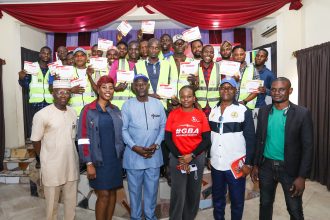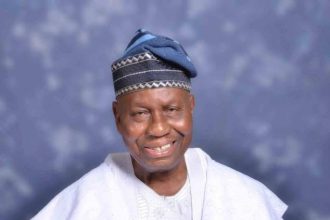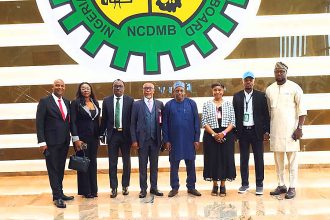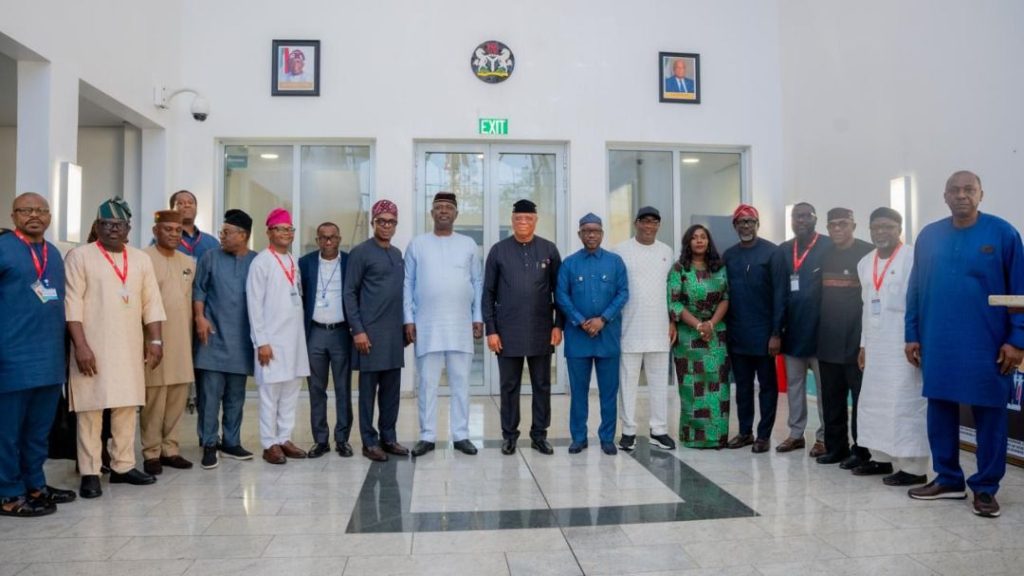
Fired by a shared purpose to sustain momentum and achieve key milestones in local content development in the oil and gas industry, the Governing Council and top Management of the Nigerian Content Development and Monitoring Board (NCDMB) over the weekend held a two-day retreat to deepen understanding of statutory responsibilities, corporate governance principles and strategies for enhanced performance, among other things.
It was attended by the Minister of State for Petroleum Resources (Oil) and Chairman of the Governing Council of the Board, Senator Heineken Lokpobiri, and the Minister of State for Petroleum Resources (Gas) and Co-Chairman of the Council, Rt. Hon. Ekperikpe Ekpo, and other members of the Governing Council. The Executive Secretary, Engr. Felix Omatsola Ogbe was attending an international assignment, hence was represented by Engr. Abayomi Bamidele, Director of Capacity Building at the NCDMB, among other Directors. It was the first retreat was for the current Council since its inauguration in the first quarter of 2024.
In an opening address at the event, which holds at Ikot Ekpene, Akwa Ibom State, Senator Lokpobiri thanked Members of the Council and Management for the sense of duty demonstrated in their whole-hearted support and attendance of the Retreat.
He said the event was intended to introduce Members to the workings of the Board as chief implementer of the Nigerian Oil and Gas Industry Content Development (NOGICD) Act, 2010, and their own statutory roles as supervisors of the agency who have to ensure its effectiveness and success in the delivery of its mandate.
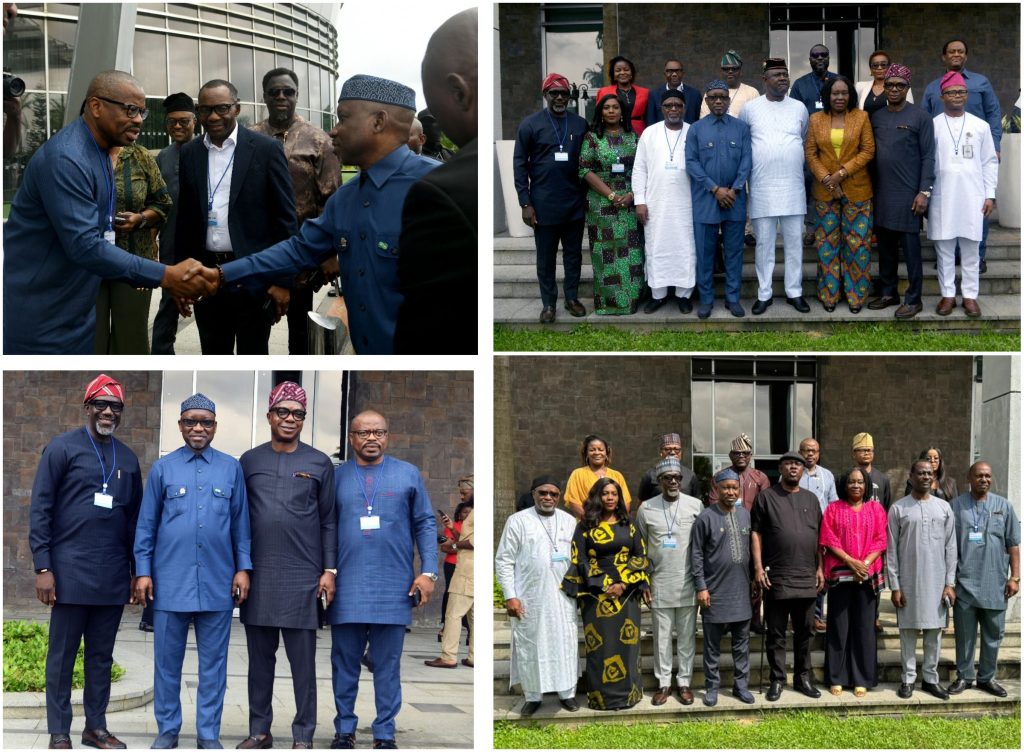
Drawing attention to different sections of the enabling law of the Board the Minister reiterated the need for the Council and the Management to always act within their statutory limits to foster understanding and trust, which he said were required for team spirit.
He said the NCDMB has become a business enabler to the oil and gas industry, creating optimum conditions for indigenous companies to thrive and thus deepen local content as envisioned by the NOGICD Act. While noting that there was still room for improvement, he charged the Management to be more forthcoming with information on the activities of the Board as well as challenges whenever they arise.
Earlier in a welcome address, the Executive Secretary of the Board, Engr. Felix Omatsola Ogbe, represented by the Director, Capacity Building, Engr. Bamidele Abayomi, expressed profound appreciation to the Chairman and Co-Chairman of the Governing Council and other participants at the Retreat, stating that the event represented “a unique opportunity for mutual interaction, strategic bonding, and a deeper understanding of the operations, challenges, and aspirations of the Board.”
He said the functions of the Council, which revolve around providing policy direction, approving strategic operational plans, and ensuring effective implementation of the Nigerian Content Policy, are outlined in Section 75 of NOGICD Act, and that the commitment of its Members to the vision and mandate of the Board has been instrumental in sustaining momentum and achieving key milestones.
Engr. Ogbe noted that the Retreat would bring to light challenges faced by the NCDMB and that the invaluable guidance of Council Members on how best to surmount such was required, whether through policy directives, regulatory interventions, or strategic partnership. He said heads of the Directorates of the Board were available to provide detailed insights into their operations, achievements and constraints.
The NCDMB boss cited the establishment of the Nigerian Content Intervention Fund (NCIF), the successful implementation of the 10-Year Strategic Road Map (2017-2027), and commitment to deepening local content (which is currently at 56 per cent, up from five per cent in 2010), as contributory factors in its attainment of significant in-country value retention and attraction of investments to the oil and gas industry.
A major highlight of the Retreat was the paper presentations by renowned experts and thought leaders drawn from different professions. Dr. Folasade Yemi-Esan, one-time Head of the Civil Service of the Federation, presented a paper on “Corporate Governance, Accountability and Efficiency”; Engr. Abayomi, of the NCDMB, gave an “Overview of NCDMB’s Structure and Operations,” including the impact and challenges of implementing the Board’s mandate.
Other papers and presenters were “The New Tax Laws and Their Implications for NCDMB and the Nigerian Content Development Fund (NCDF)” by Mr. Taiwo Oyedele, Chairman of the Presidential Committee on Fiscal Policy and Tax Reforms”; “Strategies for Optimizing Performance and Deepening Local Content” by Professor Nkem Iheanachor of the Lagos Business School,” and “The Purpose and Status of NCDF Contributions and the Impact of the Nigerian Content Intervention Fund (NCIF).
In her presentation, Dr. Yemi-Esan stated that Council Members need to understand their duties as set out in the enabling Act to provide strategic direction to the Board as well as oversight, while insisting on accountability by the Management. He urged them to also allow sufficient room for Management to carry out their statutory responsibilities.
Speaking from a position of authority as a former Head of the Civil Service of the Federation, she spelt out the functions of Council Members and distinguished them from the day-to-day administrative responsibilities of Management. She explained the need for cooperation between Management and Council in order to achieve unhampered and efficient running of the organisation and attainment of corporate objectives.
During an interval in the paper presentations, the Governing Council and Management of the Board paid a courtesy visit to the Governor of Akwa Ibom State, Pastor Udo Eno, at Government House, Uyo. Speaking on behalf of the visiting Council and Management, the Minister of State for Petroleum Resources (Oil), Senator Lokpobiri, thanked the Governor for the warm reception accorded them and for sustaining the standard of performance and service delivery attained by his predecessors.
The Governor expressed appreciation to the NCDMB for choosing Akwa Ibom for the Retreat and for a number of interventions in capacity building in his State. He drew attention to the State’s development of an Oxygen Production Plant and its plans for utilisation of compressed natural gas (CNG), expressing hope of collaboration with the Board in such areas.
On the NCDMB team at the Retreat were Engr. Bamidele Abayomi, Director, Capacity Building; Mr. Naboth Onyesoh, Director Legal Services; Mr. Silas Ajimijaye, General Manager, Monitoring and Evaluation – Midstream; Ms. Tassala Tersugh, General Manager, Midstream; Mr. Teddy Bai, Deputy Manager, Government Relations; Engr. John Barigha, Supervisor, Marine Vessel Categorisation, and Ikenna Ezeguzo, Supervisor, Movable Assets, and Mr. Prince Foncha, Officer, Corporate Communications Division.
GATMASH NEWS
…News That Drives Impact
For advert placements and business inquiries, kindly reach us via:
📧 Email: [email protected]
📞 Tel/WhatsApp: +234 (0) 807 202 2024
We value your voice! Share your stories, eyewitness reports, and contributions with us anytime:
📲 SMS/WhatsApp: +234 (0) 807 202 2024
📧 Email: [email protected]
Visit us online: https://www.gatmash.com




